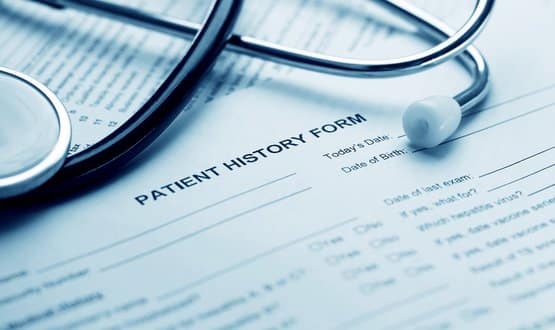NHS data worth £9.6bn per year, says Ernst & Young
- 24 July 2019

Data held by the NHS could be worth nearly £10bn a year through operational savings, improved patient outcomes and benefits to the wider economy, a report from Ernst & Young has concluded.
‘Realising the value of healthcare data: a framework for the future’ offers an estimate on the total value of the NHS data set held across primary, secondary, tertiary and social care services.
The report considers the trading values of health and life sciences companies with “significant patient data assets”, as well as recent commercial transactions involving companies and patient data.
By taking into account the 55 million primary care records in the UK, as well as a “treasure trove of information detailing health, wellness, illness and the associated care pathways” held by the NHS, Ernts & Young (EY) puts the value of NHS data at £9.6 billion per year.
It concludes the value of the NHS data set could be as much as £5bn per annum, while delivering £4.6 billion of benefit to patients though personalised medicine and big data initiatives, as well as operational savings for the NHS and improved patient outcomes.
In addition to the 55 million primary care records, EY also considered the value of the estimated 23 million patient-episodic care records or electronic medical records (EMRs) that are captured when patients receive secondary or ‘specialist’ tertiary care.
Such information is held hospital trusts and includes details on admissions and medical interventions in accident and emergency departments.
EY estimates that EHR or EMR data has an estimated value of greater than £100 per patient record.
It notes that the value of data “will vary depending on its characteristics”.
“To measure the monetary value of data, one must first understand how these different characteristics increase or decrease its value,” the report continues.
Estimates were made by taking the number of patient records in each category and multiplying this by the relevant estimated value for each patient record.
The value of these data sets increases when they can be linked, such as by combining primary and secondary care with genomic profiles.
Further observations made by the report include:
- Genomic data aggregators have raised capital from private equity and pharmaceutical companies at estimated valuations of over £1,500 per DNA sample
- Deals combining genomic and phenotypic data from patient records have been valued between £1,000 and £5,000 per patient record
- Partnerships combining genomic and phenotypic data from patient records have been valued between £1,000 and £5,000 per patient record
Fragmentation remains an issue
Yet delivering value from this data faces “significant process and technology costs associated with aggregation, cleaning, curating, hosting, analysing and protecting these transformed data sets,” the report notes.
Fragmented data sets and access restrictions are indicated as a major barrier.
“Interoperability between health care solutions and data platforms is pivotal to success,” the report reads.
“In the ideal world, every patient would have a single EHR, all records would be digital and centrally housed, and all health care platforms and data sets would be standardised and interoperable. But in reality, the NHS health care data ecosystem is made up of multiple fragmented and geographically dispersed data silos. Each data set contains multiple data types and formats.”
“Part of the challenge (and cost) of unlocking value is developing the most suitable processes and data workflows to aggregate, clean and convert these fragmented and isolated data records into a single high-quality, analysable data set.”
EY signposts the use of artificial intelligence (AI) and analytics platforms in making sense of – and unlocking value from – data sets held by NHS organisations.
“Early adoptions of AI within the health care ecosystems have been promising. Applying AI to the NHS data set will yield insights that can be used to improve patient outcomes through improved monitoring and better use of medicines.
“As a follow-on from this, AI can help reduce errors, provide better diagnostics and improve demand planning. Ultimately, improved patient health will also have implications for the UK economy and consequent positive impacts on public finances.
“AI could be applied to the NHS data set to make its operations more efficient and more accurate, including reducing adverse reactions to medicines, improving the speed and accuracy of diagnostics, and, from an operational perspective, leading to more effective and accurate theatre scheduling and capacity planning.”
EY provides strategy, analytics, cyber, valuation, risk and governance capabilities to digital healthcare company Sensyne Health, which is currently in agreements with George Eliot Hospital NHS Trust and Wye Valley NHS Trust that grant it access to anoymised patient data.
Responding to the report, Lord Drayson, CEO of Sensyne Health, said: “Data driven innovation will transform how healthcare is delivered in future. The quality and scale of NHS data, covering a population of over 50 million people from birth to death, provides the UK with a major competitive advantage and is a very valuable national asset.
“Enlightened policy that encourages ethical and fair collaborations between the NHS and the life sciences industry that use NHS data, could help to fund NHS services in future, as well as significantly improving the quality and affordability of care for patients.”





4 Comments
It would seem that, in the calculations of Messrs Ernst & Young, the value put on privacy, trust and individual autonomy are all zero. Some might disagree with that valuation. Personally, I should like to opt out of the world of Messrs Ernst & Young. In comparison, the Paleolithic period seems very human.
When you say our data is worth money.. who you gonna sell it to? I don’t want you sharing my personal information with companies who just want to sell me stuff.
Hi Jackie,
I’ve added a link within the article – you can also find the full report here: https://assets.ey.com/content/dam/ey-sites/ey-com/en_gl/topics/life-sciences/life-sciences-pdfs/ey-value-of-health-care-data-v20-final.pdf
Is this report and the valuation methodology available? As we are working on Sharing records/data across organisational boundaries (NHS/Social Care etc) it would be very interesting to understand how these values were calculated.
Comments are closed.